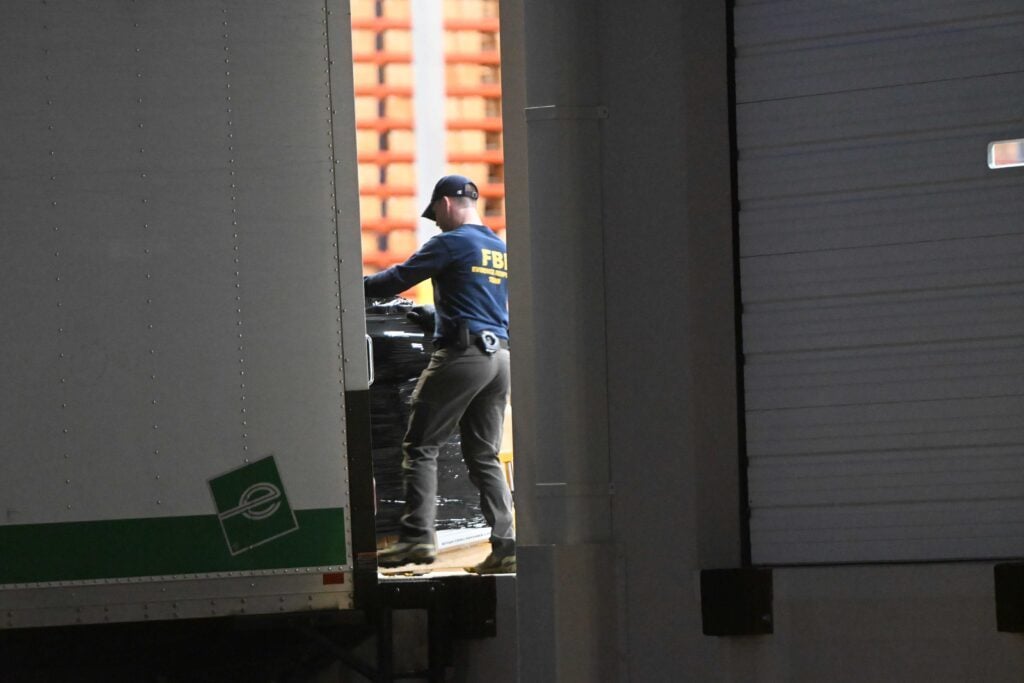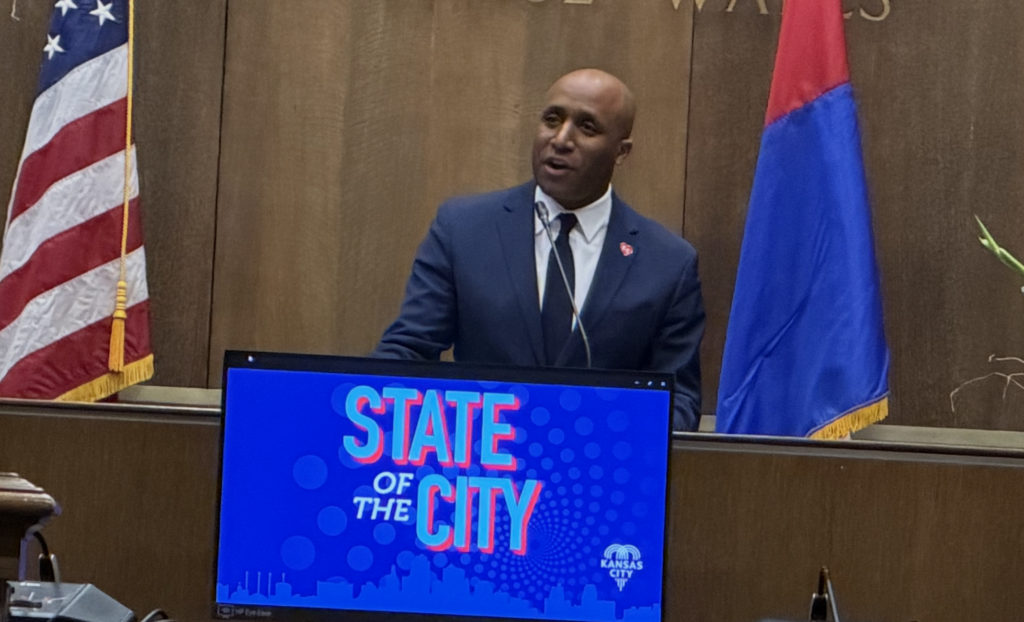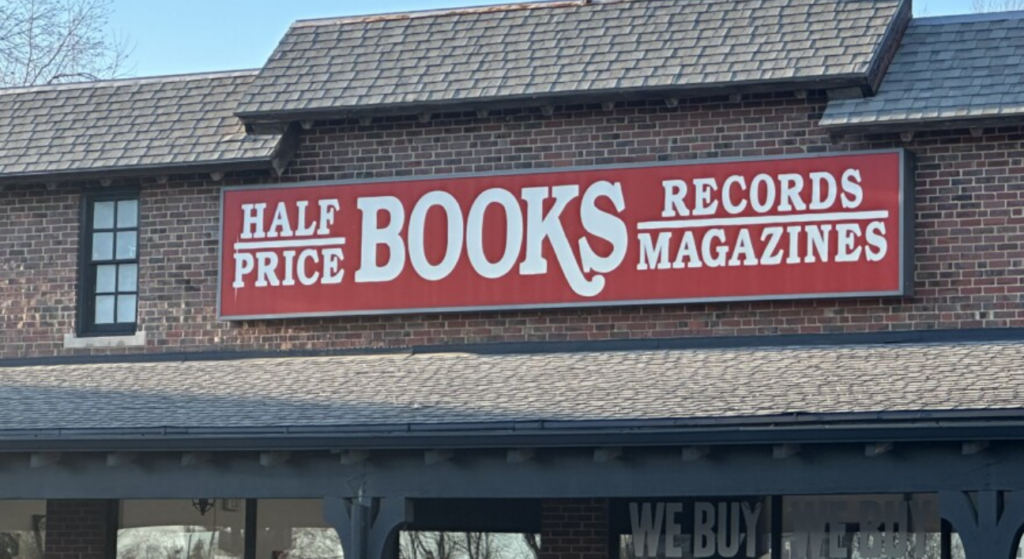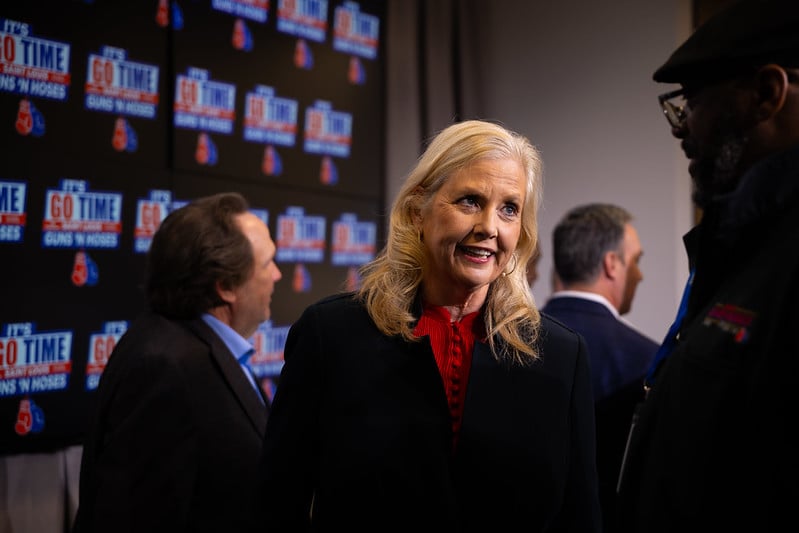Letter from the Editor: In the wake of the Chiefs victory parade mass shooting, who do we want to be?
KC's attention—and finances—are focused squarely on the future. What are the real costs of ignoring the present?
Dearest reader,
This piece is overdue by a week. Perhaps that’s good, because now it’s less a string of run-on profanity, but while the language has cooled the anger behind these words has only become more heated.
Last Wednesday was, up until a very specific minute, one of the most exceptional days in the history of Kansas City. After a nail-biting, stomach-churning, knock down drag out fight in Las Vegas, our football team claimed victory in its second consecutive Super Bowl. For the third time in a brief set of years, the city made its elaborate plans for a celebratory parade and star-studded local event, where our favorite players could take off their helmets, cast aside the strict professionalism required of their jobs, and bathe in the love of a city who would do anything for them.
The parade itself had so many small notes of strong organization and personal awareness—you could tell that we, as a city, had gotten much better at throwing a victory parade. Despite the expected, earned level of goofy delight one would expect, your friends and neighbors were better behaved than the years where everyone seemed to be climbing dangerously on any structure they could find, and even our quarterback consistently mixed his revelry with trying to good-naturedly invite his cohorts to ‘reign it in’ and, y’know, not drunkenly fall off a stage—real big brother vibes.
In a year ahead of a national presidential election and an avalanche of local political issues, this felt like one of those increasingly rare moments where you could get the entire metro in one place and have everyone get along.
It was special. Singular. Unleashed, unhindered joy in a manner that our modern life rarely affords.
Then, a group of men looked at each other weird and pulled guns. One woman died. At least 20 others were wounded by gunfire—many of them children.
In Kansas City we are living and working within a fundamentally broken system and nothing is coming to rescue us.
This isn’t to say that we don’t want to fix it. This isn’t to say that we don’t, I assume, all want it to be fixed. I struggle to imagine the person that looks at the mass shooting event we just went through whose reaction would be “Well, that’s just the cost of getting people together.” We, collectively, want and need this to change, but we have not grappled with the fact that our “meaningful efforts” to this point have only made things worse. We are a well-intentioned population who have yet to make a meaningful dent in the loss and pain that keeps washing over our home.
Kansas City keeps setting new murder milestones. Our gun violence is unceasing and horrifically common place. Our solutions have been an extensive list of attempts at addressing this on macro and micro levels, spanning everything from boots on the ground communication, the pleas of religious leaders, and a police force whose funding keeps going up. We are trying to emulate any success story we can find from other cities, but at the end of the day the statistics show that we are increasingly throwing spaghetti at a wall and none of it is sticking.
Why can’t a city with growing resources, growing calls for action, growing population, and growing desperation not summon a single meaningful advancement against our own people dying? What are we supposed to do?
I have a suggestion. It comes from a personal place, but I think the takeaway may be helpful to our current crisis.
Two years ago, I hit the lowest point of my entire life. I was so furious at so many things, so many people, and with myself. There were clear, obvious problems that I knew needed my attention. Instead of taking time to deal with them, I kept plowing ahead. I made myself numb to the problems that I knew were getting worse, and I believed that if I found success in other areas this would all work out in the end. To prevent me from dying, it took the combined solidarity of everyone who cared about me. They collectively said “enough is enough.” That’s the moment that the excuses stopped, that moving forward tumbling blindly stopped, that doing any further harm stopped.
“Nothing changes if nothing changes.”
That mantra is bumper-sticker logic. It’s basic. You could probably find it burned into wood in the gift shop section of a Cracker Barrel. But it’s true. And it’s true on a life-altering scale when you hear it… when you’re ready to really hear it. When you’re ready to admit that your problems are not going to be out-thought, out-maneuvered, or simply overcome with time. When toxicity has become so engrained in your DNA that it is impossible to separate your identity from the pain, then the time has come to slam on the breaks and Deal With This. There’s no way to Deal With This if your attention is divided into anything else.
No half measures. No incremental change. No half-hearted attempts. Do or do not.
I do not share this story of my personal collapse with you to use it as a platform for preaching. I don’t share it in hope of convincing anyone of anything they are not already invested in. I share it because this place has got to admit the truth of the situation: We are failing. Our situation is not going to get better unless we decide, collectively and with everything that we’ve got, that we simply refuse to continue living this way.
Nothing changes if nothing changes. And right now, Kansas City needs an intervention.
I want you to intervene.
The Kansas City Chiefs have spent the last few months occupying such an overwhelming national spotlight, from our play on the field to the modern love story unfolding off the field, to the stunning victory that brought us to last Wednesday. Then the national spotlight got to see the other side of Kansas City—a massive, constant epidemic of violence that we hide from the world and hide from ourselves. It has taken a backseat behind too many other priorities for too long and that isn’t set to change now.
If you look at the plan for where KC is headed in the next few years, you can see what truly matters to those in charge. We’re hosting an international sports tournament in the World Cup and making fundamental infrastructure shifts to accommodate it. We’re going to build on the success of the NFL Draft and our Super Bowl win to court more big events. We just announced that we’re leveling a chunk of the Crossroads district, displacing people and businesses so that we can build a baseball stadium no one asked for, and we are asking the taxpayers of this city to foot the bill.
In everything on our docket, we are actively inviting more and more outsiders to come here. Our top priority is expansion for expansion’s sake. The people of Kansas City and their needs are falling. The murder rate is rising.
Is it morally right to invite people here?
Is it ethically appropriate to keep investing in entertainment districts, stadiums, observation wheels, and spectacle when we are not protecting the people who live here, much less the visitors we’re hoping will be drawn into our space?
What do we really care about? It doesn’t feel like we’re putting our own survival in the Top 5. If we can’t protect us, how are we supposed to protect strangers?
This letter doesn’t propose one direct solution to the violence. I know you’ve noticed. That’s because I don’t have that answer, nor am I sure there is any one issue to tackle. Is it a gun problem or a mental health problem? Yes. Is it something we need local control over our police department to solve or is it about providing our community with the kind of foundation where human beings stop falling through the cracks? Yes. Are there national factors at play here stretching to the top of our representatives or is this about fundamental personal autonomy and incentivizing local common sense shifts to how we think of ourselves as Americans? Yes.
Rather than standing behind one issue to tackle with the hopes of solving this, I’m proposing the one thing that gets this done: Acknowledging that anyone feeding you half-hearted, non-solutions needs to know that this time we will not be placated. That this time we won’t take “wait and see” or “now isn’t the time to make it political.” Now we demand action or we’ll vote them all out and find people who care if we live or die.
The “we” in this story isn’t saying that each individual person here needs to pick up a pitchfork and march on City Hall until new laws are passed or until we re-allocate the funds to make this a livable, supporting community for all. This isn’t our fault for not… tweeting enough or spending enough of our day fretting about the problems that plague us. But the “we” of this city… we do have the power to not get distracted, to not move on, and to not let this go. If we don’t let this go, if our representatives at every level of government know that we refuse to keep living this way, that’s what “we” have the power to exert.
In the days that have followed the shooting at the Chiefs victory celebration, one of the first refrains from spectators is that, no matter if we win the next Super Bowl, we’ll almost certainly never have a large publicly accessible parade again. Rather than deal with these issues head-on, our first instinct is to know that we’d rather avoid more difficult conversations about public safety and simply stop having parades. There is no freedom if we live in that degree of fear. I cannot fathom a more obvious example of crippling denial.
Once again in America, “thoughts and prayers” will do nothing. It’s a cowardly thing to say, said by cowards that wield the power to save lives, and we must vote them out. Similarly, while I applaud the efforts of anyone working for improving the lives of those harmed via “#KCStrong” I admit that I would hate to see this become a term we throw around. KC shouldn’t have to be strong. KC shouldn’t have to harden itself and settle for “This is just how things are now.” KC shouldn’t resign itself to moderate form of “Keep calm and carry on.” KC shouldn’t be asked to repeatedly rise to a challenge, when it could rise against the source of those challenges.
There’s a vision for a better Kansas City, one where public resources are used for public good—for housing, schools, transportation, and genuinely focusing on violence epidemic that prevents us from being the city we know we can be. To paraphrase the 45th President of the United States—yes, that’s how apolitical I’m willing to be here—we need to shut this whole thing down until we can figure out what’s going on.
This place has hit the lowest point. Or it can be, if that’s what we want to admit it. It could have been any shooting before this, it could have been any murder in the last few decades, but we could also collectively choose that this is the last one we’ll accept and plow through, as we’ve accepted so many others. There are clear, obvious problems that we know need our attention. Instead of taking time to deal with them, we keep plowing ahead. We’ve made ourselves numb to the problems we know are getting worse, and we stubbornly seem to believe that if we find success in other areas this will all work out in the end. To prevent more of us from dying, it’ll take solidarity—to collectively say “enough is enough.”
This can be the moment the excuses stop, that moving forward tumbling blindly stopped, that allowing this to keep getting worse is ceased. We can choose that. We can simply choose that. We can put aside everything else and just do what needs to be done.
If we truly give a shit, it’s time to press pause on everything else. Step back. Make KC a great place to live instead of an easy place to die.
Nothing changes if nothing changes.
—Brock Wilbur









